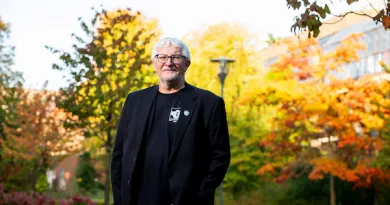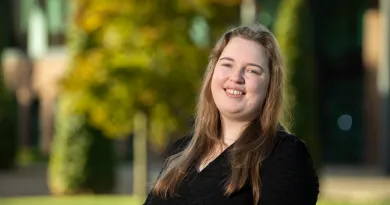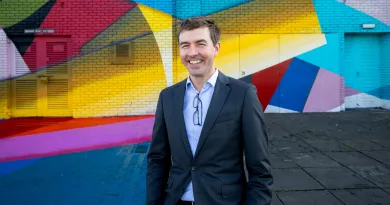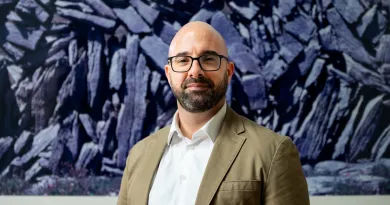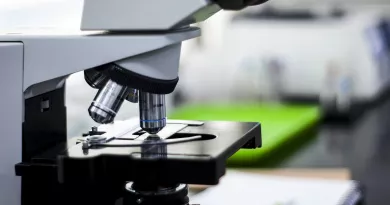Orla Muldoon is founding professor of Psychology.
She is a social psychologist which means that she is interested in how social contexts and in particular social systems and structures can shape behaviour, attitudes and health.
Orla is the recipient of an ERC Advanced research grant which is exploring whether adversity, trauma and its psychological consequences are driven by social identity change.
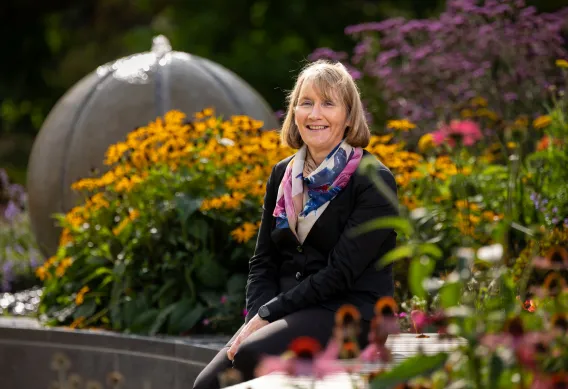
The grand challenge that I'm focusing on is really concerned with the impact of trauma at its heart. Much of what I'm trying to do at the moment is to demonstrate that the negative impacts…of trauma are caused by how we feel we are connected to other people, how we feel we belong in the world, how much we trust other people in our lives as much as they are to do with the traumatic experience itself.
Professor Orla Muldoon explains how changes in connections and feelings of belonging impacts both people's physical and mental health.
I’m a psychologist and I'm particularly interested in social psychology. I've spent much of my career studying the impact of traumatic experience adversity and how that impacts on things like mental health, but also social attitudes and political change. So it's a big field, but it's mostly what we're trying to get at is how what happens to us gets under our skin. What happens to us in life and how difficult experiences in life can get under our skin and make us sick or not.
I felt that research was a way that you could change practise and policy. Whereas in applied psychology, you were changing one person at a time. So I saw research as a way of progressing the world in a direction that it should move, I ended up on that track. I ended up in academia and I suppose I would feel very strongly that universities are places where knowledge needs to be produced.
They're not schools, they're not just about teaching and learning, of course they're about teaching and learning, but they're also about the production of knowledge. So if we think of something like Covid and the pandemic that arrived entirely unexpectedly, the manner in which we responded to Covid was entirely built on our capacity to create knowledge. Universities have to be places where, when we're presented with the unexpected, we can carry out research and produce new information that tells us this is the direction in which we must go if we want things to work out positively. So I see research as a really powerful and positive force in the world.

What it means to be a researcher?
Being a researcher means that you're someone who's profoundly interested in your area. You're so deeply curious about what it is you're doing. It's almost like you're in a good book. You're also someone that's very persistent. You find ways round things. You're a problem solver and there is a part of you that is really embraces rules and rigour you like. Dotting i's crossing t's, being careful, being thorough, going back over to double check, and you find great satisfaction in solving the problem, ultimately getting the answer that's like the ultimate win.
I suppose I wouldn't say I chose a career in research. I would say that a career in research found me and it kind of suited me and I was in it before I knew that I had a career in research. There's a phrase that researchers, certainly the social sciences and psychology often use where they talk about it isn't research, it's me search.
It's all about the people
I would say I love people. I find people fascinating. I find the logic that people create for themselves really interesting. I think that if you are willing to really listen to people, you can see and hear very clearly that people's actions are largely motivated, motivated by lots of different things for sure. But often we look at other people's behaviours. Say in another culture we might look at a behaviour that we've done work in Nepal for instance. You might look at a behaviour in Nepal and say, wow, what are they doing? Why are they throwing petals around the place? It's very beautiful, but it's very peculiar and not at all something that we're familiar with. But actually, if you really listen and pay attention to what people are saying and doing, people nearly always have a reason for what they're doing.
Or they can explain to you in reasonable depth why it is they have proceeded in the way that they have. And I think that understanding why people behave in the way they do is really important. And again, it became really important during covid, we had regulations where people were being asked to, for instance, not share lifts, to go to work, to take public transport and wear masks. And some people didn't do that. So it's really interesting to think about, well, why didn't they do that? It's really interesting to see then how people make sense of regulations when they've had to violate them. I think that's really interesting. People are really interesting. It's really interesting to understand. And it also can help us support people to do the action that we think might protect our health or protect their health.
What makes me curious more than anything is people and people's explanations for their own behaviour and how people understand the world and how they respond to the world and the experiences that they have and sort of the thought processes that underlie that. I mean, people are fundamentally fascinating.
I remember years ago, and this is a research probably during my PhD or just after, we were doing interviews with a group of young men who were, they all had custodial sentences for GBH. Some of them had custodial sentences for manslaughter. And it was a real lesson for me. So we went in to do the interviews and I was explaining to the men why we were there that we wanted to speak to people who had had some history of violent behaviour. And they all looked at me blankly and said, well, why are you here? So they didn't see themselves as having some history of violent behaviour.
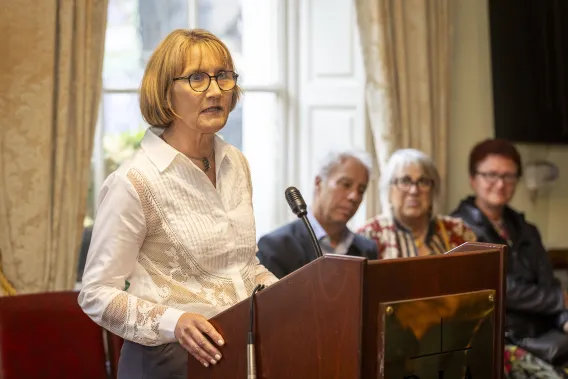
So people understand their own actions in very different ways to the way that somebody on the outside who said, well, people with the custodial sentence for violent behaviour are probably some people who have had history of violent behaviour. But that was not how they saw themselves and that was not how they saw their actions. They saw their actions as effectively them being put in a position where they had to defend themselves. And sometimes it was defending their ego or defending their own sense of self, wasn't physically, it was just a defence of identity, a defence of who they were. It is really interesting how people explain things and understand things in their world and the reactions that cause.
And you meet loads of people like that. You meet people where you're just constantly going, oh wow, I would never ever have thought of that.
Community is strength
We've known for many years that people who have social support do well when they have had a traumatic event or bereavement. And even though we know that social support is important, we don't really know why. As part of a European research council funded project, we’re working with Milford Care Centre, which runs bereavement support groups. What we're trying to show is that what happens in this group and this sense of connection to other people who've had a similar difficulty, a similar trauma, that sense of connection to other people at a time when you would be inclined to isolation.
If you think about when people are bereaved, they're maybe a bit depressed, they don't want to go out, they've lost their husband. It's not the moment that you're going to go out and seek new friends, but this support group is where you can connect with people on the basis of a sense of shared experience, that connection, I suppose, can buffer the negative impact on your health that widowhood, for example, would normally cause.
A very well-known statistic that when people become a widow or a widower, the chances of dying in the subsequent years are very, very much amplified. So we look at the people, we track them as they go through the groups, and we take some measures using spit and cortisol as well as how they feel about the group and this sense of shared experience. And we're trying to see if these groups, because of this sense of shared experience, can mitigate some of the negative impact of widowhood.
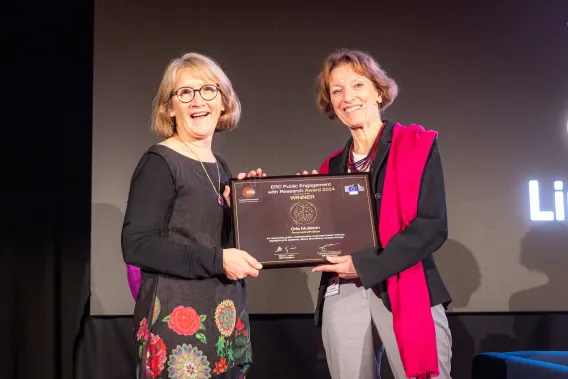
A sea change in thinking about trauma
The grand challenge that I'm focusing on is really concerned with the impact of trauma at its heart. Much of what I'm trying to do at the moment is to demonstrate that the negative impacts, or indeed the positive impacts of trauma are caused by how we feel we are connected to other people, how we feel we belong in the world and how much we trust other people in our lives, as much as they are to do with the traumatic experience itself.
And that's a sea change in thinking because mostly when people have thought about trauma, they attribute the negative effects to the thing that happened to them, the war, the rape, the fire that they were caught in. But actually, what we're showing is that the traumatic experience can change the connections we have to other people. And it's that change in connections and feelings of belonging, feelings of trust in the world through our memberships of groups, through sort of a collective orientation to groups that that's what has the impact on people's physical health as well as people's mental health.
As well as that things like social attitudes and political engagement and sort of wider social functioning. We think of health in the way that the WHO think of health as a socialist, psychological and a political construct.
So the approach that we use is called the social identity approach, and it sees everybody as having identities that are linked to group memberships. It's an idea that even though, yes, everybody is different and is their own little snowflake, there is a lot of patterns in human behaviour. Women tend to behave in one way. Irish people tend to behave in a slightly different way to English people. There are moments where we will all behave in a similar way. It'll be easy to get everybody to put on a green jersey when there's a national rugby match or a football match.
There are patterns in behaviour that are linked to group memberships and they become realities in our minds and they're called identities. They're the social identities. The reality in my mind of being a woman or being Irish or being a psychologist or a member of the UL community, that reality has implications for how I think about myself.
One of the other things that we're looking at is we're trying to look at how these identities can be positive, can result in positive change. We've published a study where we have looked at people who waive the right to anonymity after being raped. We find in this group that there is evidence of something that we're calling collective post-traumatic growth. This isn't to say that anybody is suggesting that these were positive experiences, that people had to be raped and have to go through a court case. That's not what we're suggesting.
But we are suggesting that in these women at least that there is evidence that they become bigger than they were. They develop a sense of responsibility to other women, sometimes a sense of responsibility even to the nation where they start trying to affect social change. You can see them campaigning for changes in legislation and the judicial system, one woman campaigns for de-stigmatisation of rape victims. These kinds of changes are a kind of collective change and they occur because of the trauma. We've called this collective post traumatic growth and we're now trying to establish that it exists beyond this one example because we think that it's probably an important political force. That's where the next study in that arm of the research will go.
All voices to be heard
I suppose an inclusive society for me is a society where there is something like equality for all and where all voices can be heard. One of the things that you find with trauma is that often trauma is stigmatised. People are blamed for their own trauma. We can see it when we look at narratives of how people are talked about when they've been raped or how refugees are talked about, that they're migrants and they're only here to get jobs. We see that a victim blaming talk can appear around trauma.
To me, an inclusive society allows everybody's voice to come through and allows for equality. And I would say an inclusive society also looks a lot like the society that Ireland is going towards rather than the Ireland that I came from. So I do think we have made a lot of really positive changes as a nation. I think that we're heading for a more inclusive society or I would hope we are. That feels like the direction of travel to me.
Host and migrant…the greater the synergies
Research can help us develop pathways towards a more inclusive society. So there are certain things we know that support integration, for instance. So if we think about one of the major concerns of our time, which is migration and migration of people into Europe. An inclusive society is a society where migrants don't live in segregated ghettoised areas. An inclusive society is a society where people who come from the traveller community aren't segregated off and discriminated against. And one of the things we know about inclusion is that every day low level interactions really matter. So if you have asylum seekers parked off in a direct provision centre very far away, they're unlikely to have everyday low level interactions. But we know that if those same migrants are in housing, that is through say regular middle class and working class areas with the Irish population that you're going to get far less antipathy between.
So if people are dispersed effectively, so some of the work that we have been doing is showing that when migrants arrive, if they have a sense that they have something in common with the host community rather than that they're othered in the host community, that their engagement with the host community is much stronger and that the cross-fertilisation between host and migrant community is much better. So in that example, we know that if we have things like sanctuary runner where people interact as migrants and host, or if we have events where people can interact, maybe we have a PhD student in the department who's been looking at these kind of what hotpot events where people bring their food and share different food from different countries, these kinds of events, Irish and host. Or indeed, if we have people living in the same housing estates rather than segregated host and migrant, that you tend to have much stronger, much more cohesive and inclusive societies.
So there is actually quite a lot of evidence of this. And indeed we're hoping to show further evidence of the importance of this type of inclusion to civic participation, social change, mental health. And of course many migrants arrive with trauma. So it is important that we support migrants in terms of their health rather than make their health worse. And we all rise with that tide. An inclusive society has fewer healthcare needs, has more economically active people. So we all rise on a tide of inclusion. So I suppose there's very many ways in which research will offer us the path to inclusion.
Efficiency v efficacy
One of the things that we try to do is demonstrate that these things out there, the sort of context that's out there can get in under our skin. The example I'd like to use to sort of illustrate impact is to do with Covid. When we think back to Covid and all of the chat that went on, there was a huge emphasis on vaccines. Everybody felt that when the vaccine arrived we could all go back out to play, we could all begin to understand the idea of vaccine efficacy. And we kind of became conversant with all this. People who never understood vaccines at all were talking very knowledgably about vaccine efficacy.
But in some of the work that we have done here in the psychology department in UL, we have shown that vaccine efficacy aside, there is this other thing called vaccine efficiency.
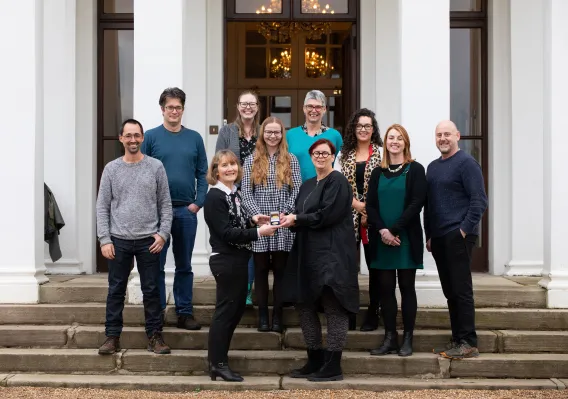
Vaccine efficiency is how good the vaccine is after you and I get it, not when they ran the controlled studies and they tested the vaccine in the lab conditions or in the clinical trials. This is how good the vaccine is when we get down to the vaccine centre and the whole country gets it. And one of the things that this particular study that we had published shows is that factors such as social cohesion and trusting other people is linked to vaccine efficiency. All of these things like social inclusion and all of these factors, how connected we feel to other people, how safe we feel our neighbourhoods are; people sometimes think of them as kind of soft and if you like almost fluffy and desirable, but not really that important at the end of the day. Whereas in fact these kinds of factors are predicting how efficient the vaccine is when we take it.
The ‘whole’ is crucial
We're very used thinking that hard science will deliver the answers, but we actually need to be thinking about how multiple disciplines can be brought together to understand how the world works. Do you know vaccines are developed in Petri dishes, but they have to work in people's bodies and we all accept and there's now a lot of research that shows what happens in our minds is linked to what happens in our bodies.
But of course what happens in our minds is completely linked to what's going on around us; whether or not we have enough money, whether or not we can feed our children or whether or not our mother is unwell, whether or not there's something else that I needed to be doing because I have a second job. All of these things are very much about psychology and the psychology of our responses to stress is linked to our immune function. Our body is connected to our mind, but yet when we think about medicine and vaccine and things like we're not very good about allowing for all of the sort of ambient stress and trauma and what consequence it has for our physiological responses to a medicine or indeed just to everyday stress. Some of the work we do is just about our physiological responses to stress and showing that adversity and trauma is changing how people can manage stress.
Eureka..but not Eureka
So was there a eureka moment? Perhaps not. But there have been several points where I would've felt that something had clicked or I would've felt that I was able to look anew at the same problem. So yeah, I would say that sometimes there is moments, but I wouldn't say I'm good at cataloguing them.
I suppose I would frequently have the radio on and something would come on and I would say there it is. So in the example of collective post-traumatic growth, I suppose I've been so convinced of that for so long, but I had no data and I was so convinced of it for so long because once I hit on it, every time I heard somebody being interviewed in the media and they were telling a story of a difficult experience, I could hear it in their narrative. So it became kind of an itch that had to be scratched. It was so clear to me that there were people who were going through difficult things, really difficult times.
And in fact, one of them was when we worked with acquired Brain Injury Ireland and the person who set up acquired Brain Injury Ireland, her brother had a brain injury and they couldn't access services.
And when she talks about that story, it's her frustration and her upset about not being able to look after her brother. She's clearly traumatised indirectly or vicariously as they'd say in the literature. She's motivated then to create a service to support people who have brain injury. In the literature up until now people have talked about individual post-traumatic growth, me getting a stronger sense of who I am. But collective post-traumatic growth is about trying to get us as a nation to do better or us as women to do better.
In the example of women who have been through the court system after securing a conviction for rape, what they are trying to do and what they explicitly state is that they're trying to improve the situation of all women. The growth that they're demonstrating is a growth in the sense of their own purpose as women, not as individuals, not as at the level of personality. It's very much at the level of social and political.
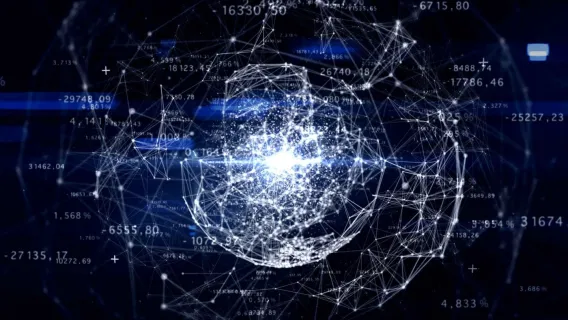
Research is a global enterprise
The approach that we use is called the social identity approach. And I would say that the reason that it's so useful is because it is for the lived actuality. But as well as that, I think as a researcher, I really think that research impact is important and it can be really hard to articulate in the social science how your research has impact. It can be really hard to convince people that the research is important and has value. I think applied research, which is the kind of research that largely I'm doing is important, but it's only good if it's theoretically driven. It still needs to have that theoretical frame so that it isn't just about a single case. It actually allows you to exist on the international landscape because this theoretical frame allows you to connect with researchers all over the globe who want to understand the universals, not the idiosyncratic Irish example.
There's a tension there all the time, but without having that sort of international focus or global focus to your research, you actually will really struggle to be a presence at all because you have to, research is a global enterprise. You have to connect with the wider world to be at the frontier of any discipline.
I don't think we're, that the group that I'm a part of and this sort of social psychology presence in University of Limerick is attempting anymore to become a world leader. I think there would be very many people who would be aware of our presence and who would connect to myself and my colleagues seeing us as having expertise in the area of social psychology. And that's something I'm immensely proud of. I don't think we're trying, we are!
Forging a new path
I finished my PhD in 1996 and there weren't that many women around. The first job I took, I was the only woman on the staff in the psychology department. And when I arrived at UL, I was the fifth female professor in the university. Oddly I suppose I was mentored mostly by women even though there weren’t that many women around to do mentoring. But those women I would say are still very good friends and still I would look for free advice. And since then, I suppose since I arrived at UL, I would say that mentoring I have done has probably been more reciprocal so that I'm probably more involved in peer-to-peer kind of support than mentoring. I have lots of PhD students, I've supervised lots of PhD students and postdocs, so I have been mentoring them as a matter of course it's the day job.
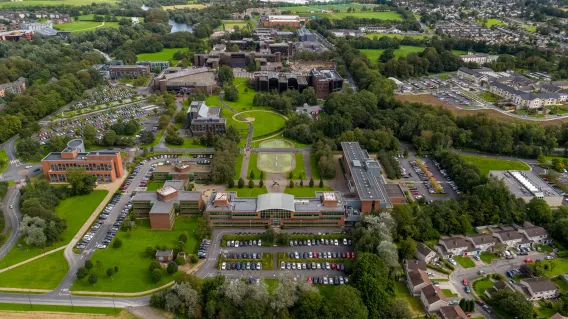
But equally I've participated in the UL mentoring schemes as a mentor. And it's like even when you're the mentor, you're often learning from the person you're supposed to be mentoring. I would say my PhD students, the current PhD students I have are a very valuable educational tool for me.
I think it is one of the great joys of academic life to supervise PhD students. You get to know young people, you get to have relationships with people who are a generation younger than you and they definitely keep you well-versed on what's going on in the world. So in the case of PhD students, technically I'm mentoring them, but in reality, they're often mentoring me.
Yeah, I guess I'd say be sure it's what you want. So when people arrive to me and say that they want to do a PhD by research, I often go through all the reasons why they shouldn't do it. And then when they come back I say, okay, you really want this. So yeah, there are difficulties in a research career. It can be very challenging in lots of different ways, but if you really want it and you're really interested in your area, it can be a really privileged life.
Accentuate the positive
I'd say the biggest single challenge of a research career is that the entire system is built on negative feedback. And as a psychologist, that is quite possibly the most dysfunctional way to get people to improve their behaviour. You have to learn quite early on to be someone who hears the feedback but doesn't take it personally. You have to hear the issue that's being addressed without feeling damaged by the feedback or the criticism. When you put in grant applications, when you submit papers, when your students put in grant applications and submit papers, everything that comes back, the feedback is like when you ask for your house to have a survey done by a quantity surveyor, the reviewer goes in looking for the fault.
The report that you get back are all the things that are wrong with your research. And so to get through the publication system or to get the funding, you have to respond to these negative appraisals, and you have to do that without letting it get to you. And that is the biggest single challenge to teach a PhD student. They're commenting on the sentence, not on you. So that is the biggest single challenge.
Curious about Orla Muldoon's research
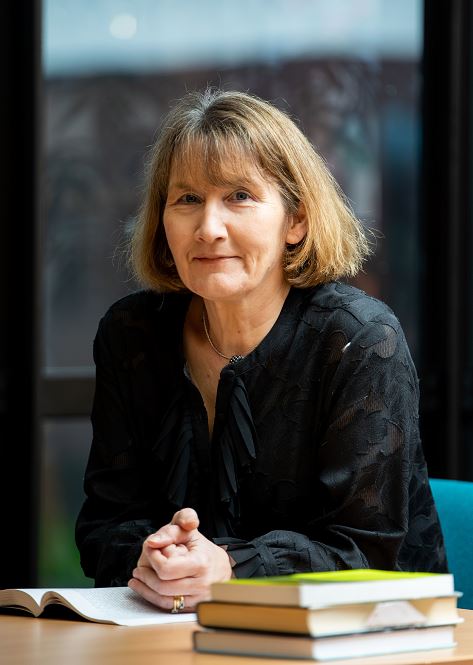
Read about the other researchers helping to change our society
Stay Curious for UL Research
